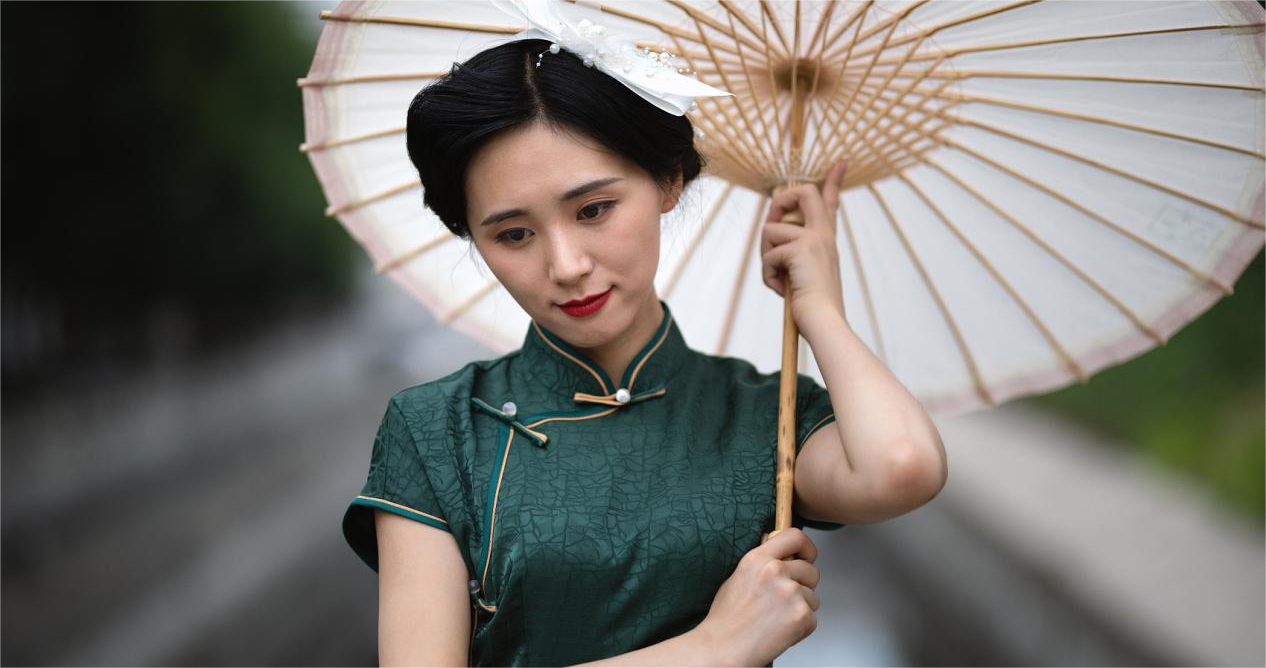Contents
- 1 The Lunar New Year’s Eve (除夕chú xī)
- 2 The Spring Festival (春节chūn jiē)
- 3 Lantern Festival (元宵节yuán xiāo jiē)
- 4 Ching Ming Festival (清明节qīng míng jiē)/ Tomb-sweeping Festival
- 5 Dragon Boat Festival (端午节duān wǔ jiē)
- 6 Qixi Festival (七夕节qī xī jiē)
- 7 The Mid-Autumn Festival (中秋节zhōng qiū jiē)
- 8 The Double Ninth Festival (重阳节chóng yáng jiē)
- 9 The Winter Solstice (冬至dōng zhì)
- 10 The Laba Festival (腊八节là bā)
Like other countries in the world, Chinese festivals are mostly related to Chinese cultural customs. Festivals are the most concentrated embodiment of a country’s culture. From the content of why the local people celebrate the festival, how to celebrate the festival, what kind of rules and rituals, we can see the character of the country’s citizens, as well as the local folk customs and people’s emotional sustenance. You can even see their characteristics in aesthetics and artistic accomplishment.
Learning the Chinese Festivals will deepen your knowledge about the Chinese culture, so it will also benefit the process of learning Chinese.
The Lunar New Year’s Eve (除夕chú xī)
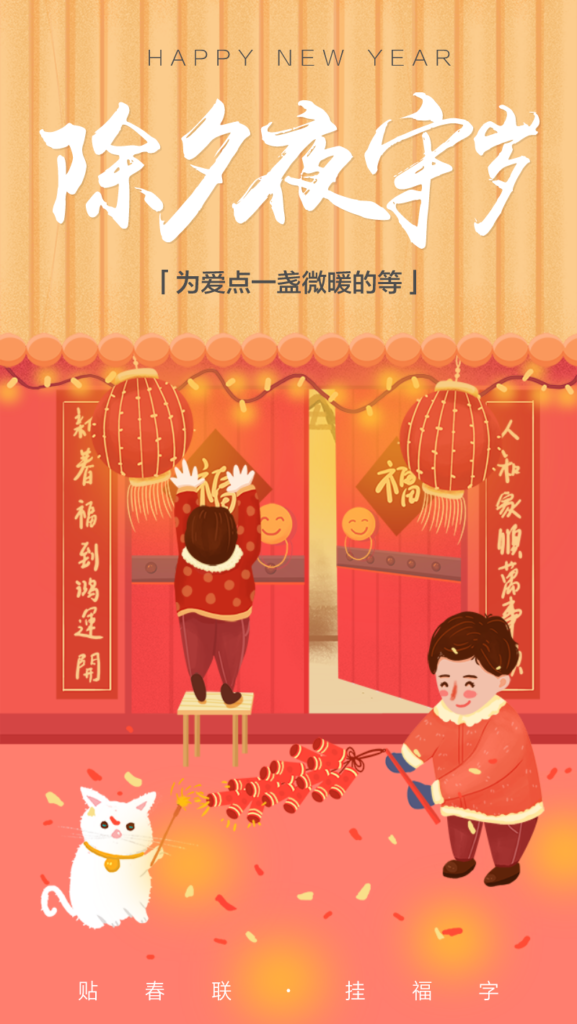
除夕chú xī is also called大年夜dà nián yè, 除夕夜chú xī yè, 除夜chú yè, 岁除suì chú in Chinese. It is the last night of the twelfth lunar month (December) of each year. 除chú means to remove; 夜 yè means the night. Therefore, Lunar New Year’s Eve is also a festival to say goodbye to the past year and welcome the New Year.
Lunar New Year’s Eve is one of the most important traditional festivals of the Han people. The Han people attach great importance to this festival. Every family is busy cleaning the courtyard, welcoming their ancestors’ home spirits for the New Year, and offering sacrifices with rice cakes and three kinds of livestock meat.
Since ancient times, there have been customs such as staying up all night on the Lunar New Year’s Eve, sticking door gods, sticking Spring Festival couplets, sticking New Year pictures, and hanging lanterns, which have been passed down for a long time.
The Spring Festival (春节chūn jiē)
The Spring Festival is the most solemn traditional festival in the Chinese nation. During the Spring Festival, China’s Han and some ethnic minority groups will hold various celebrations in various forms and with strong ethnic characteristics. On the day of the Spring Festival, people will return to their hometown, even if it’s thousands of miles away, to reunite with their family and relatives, to express their eager anticipation for the coming year and their best wishes for life in the New Year.
The Spring Festival is not only a festival but also an important carrier for expressing Chinese people’s sincere emotions. It is the annual carnival and eternal spiritual pillar of the Chinese nation.
Lantern Festival (元宵节yuán xiāo jiē)
The Lantern Festival is the first important festival after the Spring Festival. The “Yuan” month is the first month of the lunar calendar. At the same time, the ancients called the night “xiao,” so the first full moon night of the year is called the Lantern Festival ((元宵节yuán xiāo jiē)).
The Lantern Festival began in the Qin Dynasty more than 2,000 years ago. The traditional customs of the Lantern Festival include going out to admire the moon, lighting lamps, and flames, guessing lantern riddles, eating Lantern Festival together, and pulling rabbit lanterns. In addition, many local Lantern Festivals have also added traditional folk performances such as dragon lantern playing, lion playing, walking on stilts, paddling boats, twisting Yangko, and playing Taiping drums.
Ching Ming Festival (清明节qīng míng jiē)/ Tomb-sweeping Festival
The predecessor of the Ching Ming Festival was the Cold Dish (寒食hán shí) Festival. In the ancient courts, it was forbidden to light candles on this day. The “hán” in “hán shí” means cold. Ancient people only ate cold food on this day.
On the Ching Ming Festival, people visit their deceased family members together, and the custom of “tomb sweeping” remains today. Tomb-sweeping Festival is in April, spring has come quietly, everything is growing. People will choose to go out on this day and feel the breath of life. Unlike the Lantern Festival, people will have a trace of nostalgia for the Ching Ming Festival. Even if they go out to play, they may think of their past families who have been with them.
Dragon Boat Festival (端午节duān wǔ jiē)
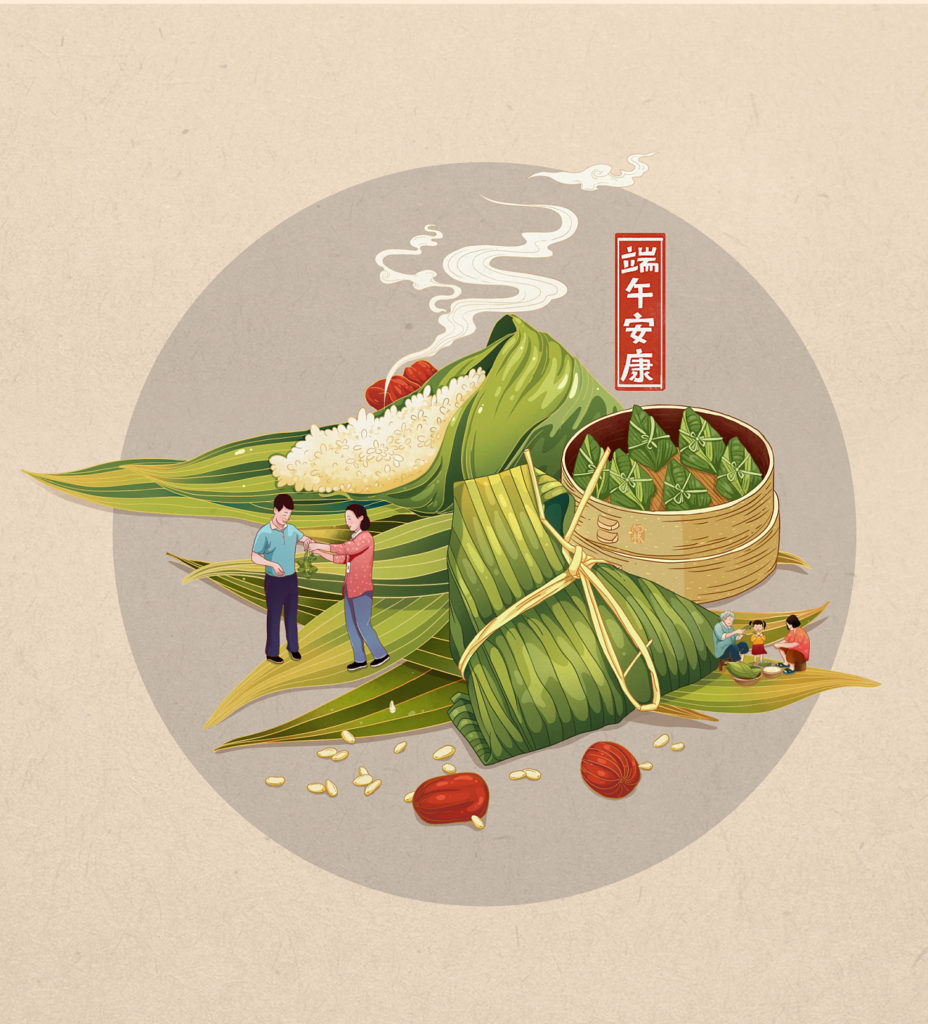
The Dragon Boat Festival originated in China. It was originally a totem sacrifice festival for the tribes who worshipped the dragon totem in the ancient Baiyue region (the middle and lower reaches of the Yangtze River and the south). Before the Spring and Autumn Period, there was a tribe in a dragon boat race on the fifth day of the fifth lunar month. The custom of totem sacrifice. Later, because of the Warring States Period, the poet Qu Yuan of Chu (now Hubei) bouldered and jumped into the Miluo River to commit suicide on that day. The ruler used the Dragon Boat Festival to commemorate Qu Yuan to establish a patriotic label of loyalty to the emperor. There are also sayings in some areas to commemorate Wu Zixu and Cao E.
Qixi Festival (七夕节qī xī jiē)
The seventh day of the seventh month of the lunar calendar is the traditional Chinese festival Qixi Festival. The Qixi Festival began in the Han Dynasty of China. Legend has it that women begged the Vega for wisdom in the courtyard on the night of the seventh day of the seventh lunar month. It originated from the worship of nature and women piercing needles and begging for cleverness. Later, it was given the legend of the Cowherd and the Weaver Girl, making it a festival that symbolized love. On the Qixi Festival, women piercing needles and begging for cleverness, praying for happiness and longevity, worshipping Seven Sisters, displaying flowers and fruits, female red, and many other customs affect Japan, the Korean Peninsula, Vietnam, and other countries.
The Mid-Autumn Festival (中秋节zhōng qiū jiē)
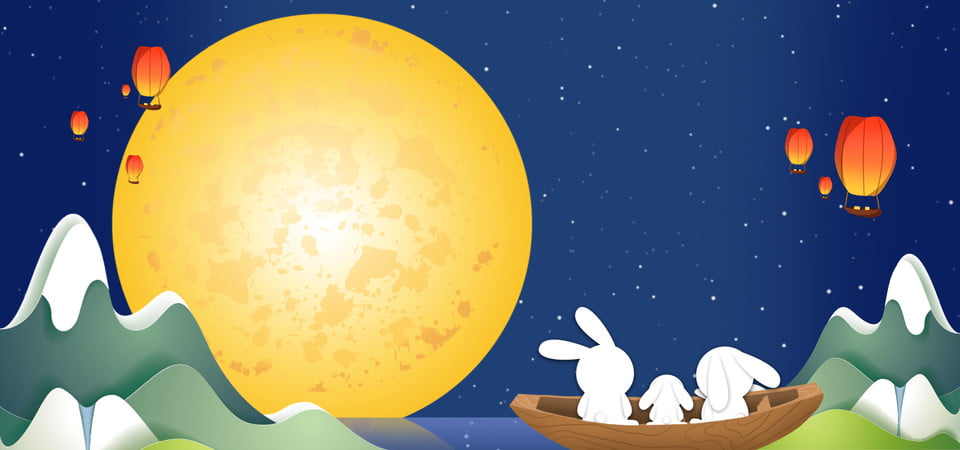
The Mid-Autumn Festival began in the early years of the Tang Dynasty and prevailed in the Song Dynasty. The Mid-Autumn Festival uses the round of the moon as a metaphor for the reunion of people. Since ancient times, the Mid-Autumn Festival has had customs such as worshipping the moon, admiring the moon, worshipping the moon, eating moon cakes, admiring osmanthus, drinking osmanthus wine, and other customs, which have been passed down for a long time. Influenced by Chinese culture, the Mid-Autumn Festival is also a traditional festival for some East and Southeast Asia countries, especially local Chinese and overseas Chinese.
The Double Ninth Festival (重阳节chóng yáng jiē)
The Double Ninth Festival is a traditional Chinese festival on the ninth day of the ninth month of the lunar calendar. Celebrating the Double Ninth Festival generally includes activities such as traveling to admire the autumn, climbing high and overlooking the distance, watching chrysanthemums, planting cornel everywhere, eating Chongyang cake, drinking chrysanthemum wine, and other activities.
The Winter Solstice (冬至dōng zhì)
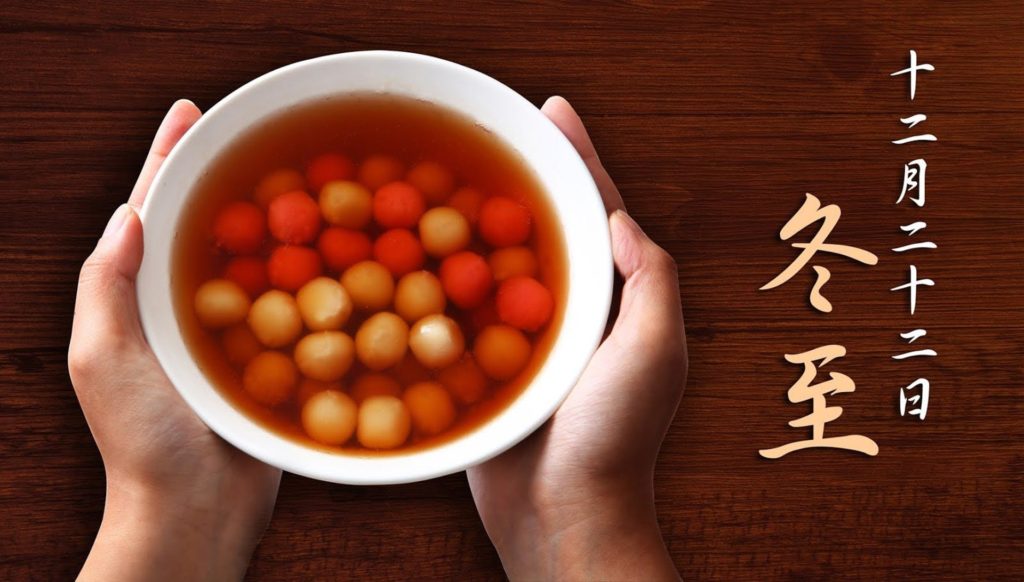
The Winter Solstice is an important solar term in the Chinese lunar calendar and a traditional festival of the Chinese nation. As early as the Spring and Autumn Period, more than 2,500 years ago, China had used Tugui to observe the sun and determined the winter solstice. It was the earliest one of the twenty-four solar terms to be drawn up, and the time was on December 21~23 in the Gregorian calendar every year. Between days.
The ancients believed that since the winter solstice, the days have become longer and longer, the sun will rise, and the sun will begin to grow stronger and stronger, which represents the beginning of the next cycle and is a good day.
The Laba Festival (腊八节là bā)
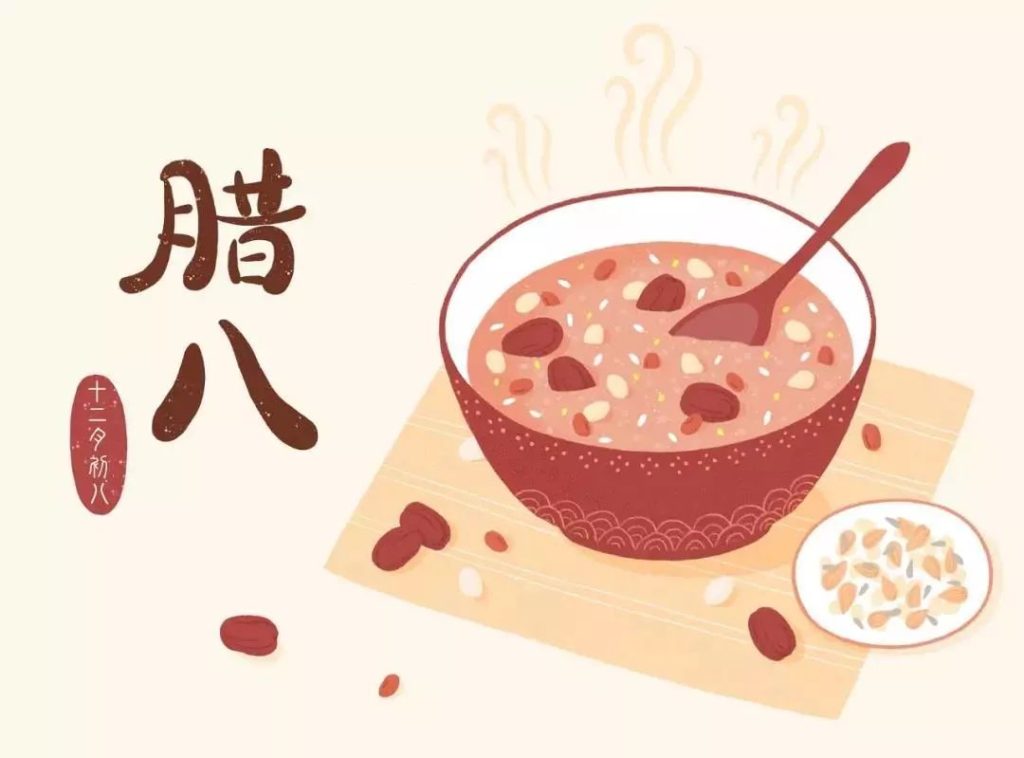
The Laba Festival is the eighth day of December in the lunar calendar. The ancients had the tradition of offering sacrifices to ancestors and gods and praying for a good harvest. In some areas, there was a custom of drinking Laba porridge. According to legend, this day is also the day when the Buddha Sakyamuni became enlightened. It is called the “Magic Treasure Festival” and is one of the grand Buddhist festivals.
